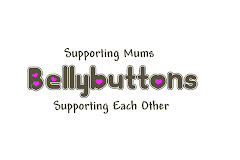
- Sometimes the reality of motherhood doesn't match the 'warm and fuzzy' images often portrayed in the media. Unfortunately, for many women, the early weeks and months of motherhood is a constant, tiring and demanding job. Most women feel 'blue' and weepy a few days or so after they have a baby. This is due to all the changes in their bodies and lives and it goes away before long. All women, after they have babies, have some bad days when they feel really down - due to tiredness, being constantly on call, not being able to keep their homes as well as they did, losing their old lifestyle and so on. This is normal. Women need extra help and support when they are caring for a new baby - this is the time to accept offers of help and ask for what you need.
For some women, however, it is more than just having a bad day or days. The bad feelings become so strong that they take over and make it very difficult for the woman to cope with the demands of her life - this is called postnatal depression. Post natal depression affects almost one in six women giving birth in Australia.
Postnatal depression can occur soon after birth or come several weeks or months down the track. It is very distressing and can make life very difficult for the woman and her family but it can be helped and it is important to get support and help as soon as possible.
Post natal depression is not your fault. It happens just like any other illness for a variety of reasons and it will get better.
Symptoms of PND
· Sleep disturbance unrelated to baby’s sleep needs: most women with a young baby fall asleep as soon as they are able to. Women with PND often lie awake for hours feeling anxious while the baby sleeps. Some women have trouble falling asleep or wake early in the morning, and may have bad dreams.
· Appetite disturbance: women may feel totally uninterested in food and say. ‘I force myself to eat because I am breastfeeding, but I don't taste anything’. Sometimes women overeat in an attempt to control their anxiety or forget to eat.
· Crying: women may feel sad and cry without apparent reason. Tears come easily. They may cry watching news coverage of a plane crash. Some women say, ‘I want to cry but can't. I am crying on the inside’.
· Inability to cope: daily chores seem insurmountable. Women may feel like running away from it all.
· Chronic exhaustion or hyperactivity
· Irritability: women with PND may snap at their partners without cause. Partners often say, ‘I can't do anything right. If I fold nappies she complains I do it the wrong way. If I don't help, I'm being unsupportive’.
· Anxiety: women may feel a ‘knot in the tummy’ most of the time and panic without cause. Some women experience heart palpitations so severe that a heart attack is feared. They may be anxious about their own health or their baby's, even after reassurance that nothing is wrong. Many women describe anxiety as their most obvious symptom and reject the term postnatal depression. They deny being ‘depressed’. The term ‘postnatal disorder’ might more accurately describe the way some women feel.
· Negative obsessive or morbid thoughts: women may be afraid to let their partners go to work in case he has a car accident. They may be afraid to leave the baby with a friend in case something happens. They may feel like life has no meaning.
· Fear of being alone: many women go out a lot because they are afraid of being alone at home.
· Fear of social contact: some women don't want to go out and may find being with groups of people overwhelming.
· Memory difficulties and loss of concentration: women may forget what they want to say mid-sentence or be unable to concentrate on simple tasks.
· Feeling guilty and inadequate: women may feel they are ‘bad mothers’ even when those around them comment on what a good job they are doing.
· Loss of interest in sex
· Loss of confidence and self-esteem: women who enjoyed their jobs may panic at the thought of going back to it. They are no longer sure they are able to do it. Women who enjoyed entertaining may panic at the thought of visitors. They may feel unable to prepare a meal when they enjoyed doing so before the baby was born.
· Feelings of self harm, harm to the baby or suicide: this may be fleeting or very detailed. It is important to assess the risk to the mother and her baby’s wellbeing, and to intervene.
Some women sum it all up by saying, ‘There is no joy in anything any more’.
There is help and support for women with postnatal depression.
Things that can help
- Tell someone
- Seek professional help
- Try to reduce stress
- Be kind to yourself
- Find a support group
- Take things one step at a time
- Don't bottle up feelings
- Eat well
- Develop a support network
- Accept offers of help
- Attend a mums group
- Take some 'me time'
There is help and support for women with postnatal depression
Your local Doctor or Hospital Emergency Department.
Beyond Blue Info Line – 1300 224 636
Dona Maria Pre and Postnatal Support Network – 1300 555 578
Centralised Mental Health Service (New England/North West NSW) – 1300 669757
Lifeline Suicide Helpline 1300 651 251
Reference:
www.cyh.com
www.beyondblue.org.au
www.raisingchildren.net.au


No comments:
Post a Comment